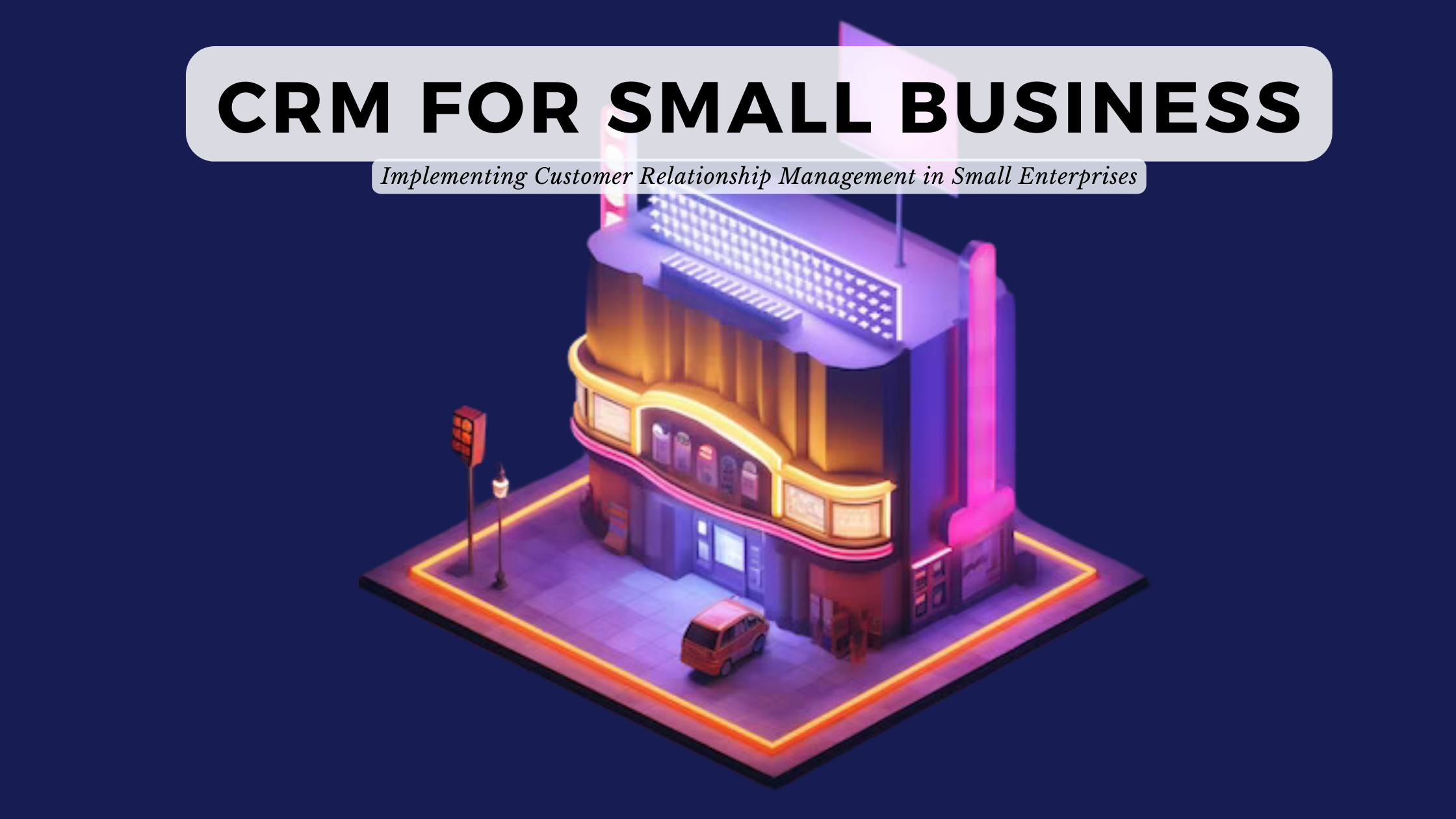CRM for Small Business: Implementing Customer Relationship Management in Small Enterprises
- Proposal Software Customer Relationship Management


CRM for Small Business: Implementing Customer Relationship Management in Small Enterprises
Customer Relationship Management (CRM) is a strategy that companies use to manage interactions with customers and potential customers. CRM helps businesses stay connected to customers, streamline processes, and improve profitability12. When it comes to small businesses, implementing CRM can be a game-changer. It not only helps in managing customer relationships but also in driving sales and growth234.
Why CRM for Small Businesses?
Small businesses face unique challenges such as limited resources and the need for efficient processes. CRM systems can help small businesses overcome these challenges by providing tools for managing customer relationships, tracking sales, and analyzing customer data234.
Implementing CRM in Small Enterprises
Implementing CRM in small enterprises involves several steps5346:
- Set realistic, actionable goals: Identify what you want to achieve with the CRM system.
- Do your research to find the right CRM solution: Different CRM systems offer different features. Choose one that fits your business needs.
- Select a CRM team led by department champions: This team will be responsible for the implementation of the CRM system.
- Forecast the costs and benefits: Understand the investment required and the potential return on investment.
- Migrate and integrate data: Import existing customer data into the CRM system.
- Train the team and test the system: Ensure that everyone knows how to use the CRM system effectively.
Relevant SaaS Products for CRM
Here are some SaaS products that offer CRM solutions78910:
- ClickUp: ClickUp offers a customizable CRM with features to track statuses, close and due dates, budgets, account sizes, and more7.
- Zendesk Sell: Zendesk Sell provides a platform for sales teams to track and manage interactions with customers and prospects711.
- Pipedrive: Pipedrive is a sales CRM software tool that enhances productivity, processes, and pipeline visibility for sales teams712.
- Salesforce Sales Cloud: Salesforce Sales Cloud delivers sales and customer service capabilities for both B2B and B2C domains713.
- Microsoft Dynamics 365: Microsoft Dynamics 365 is a set of intelligent business applications that helps run your entire business and deliver greater results through predictive, AI-driven insights14.
- Oracle Advertising and Customer Experience: Oracle Advertising and Customer Experience (CX) offers a connected suite of applications that goes beyond traditional CRM to help create, manage, serve, and nurture lasting customer relationships15.
- NetSuite CRM: NetSuite’s CRM software delivers a real-time, 360-degree view of your customers16.
Conclusion
Implementing CRM in small enterprises can significantly improve customer relationships and drive business growth. By choosing the right CRM system and following a well-planned implementation strategy, small businesses can leverage CRM to enhance their sales, marketing, and customer service efforts.
Relevant Links
- What is CRM?
- CRM: What Your Small Business Needs to Know About Customer Relationship Management
- Successful CRM Implementation Plan: 10 Step Strategy
- What Is a CRM System? Our Guide to Customer Relationship Management
- 10 Steps to Implement a Customer Relationship Management System
- ClickUp
- Zendesk Sell
- Pipedrive
- Salesforce Sales Cloud
- Microsoft Dynamics 365
- Oracle Advertising and Customer Experience
- NetSuite CRM





